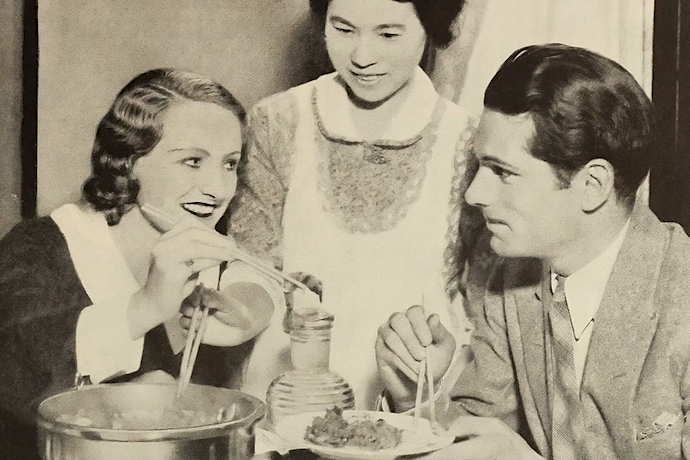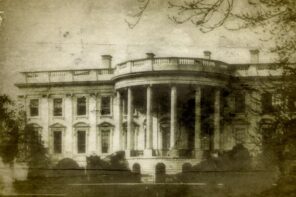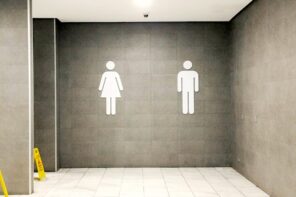Overturning Roe v. Wade was inevitable in this last decade.
In March 2015, the state of Indiana sentenced 33-year-old Asian American woman, Purvi Patel to 20 years in prison on charges of feticide—an act that causes the death of a fetus—and neglect of a dependent. She received a 30-year-sentence on the felony neglect charge, 10 of which were suspended, but a six-year sentence for feticide to be served concurrently. She was the first woman in the US to be charged, convicted and sentenced on a feticide charge. It was eventually overturned. At the time, Lynn Paltrow, Executive Director for National Advocates for Pregnant Women, predicted: “What this conviction means is that anti-abortion laws will be used to punish pregnant women.”
And, Patel wasn’t the first to be impacted by these kinds of laws. According to an NBC News report by Jennifer Chowdhury, “in 2011, Bei Bei Shuai, a Chinese-American woman, was held in prison for a year before feticide charges against her were dropped as part of a plea deal. Shuai was reportedly suffering from depression and tried to commit suicide while pregnant. She survived, but the fetus did not.” Said South Asian American activist Deepa Iyer: “Instead of receiving the medical support and counseling she so desperately needed, the state charged her with murder and attempted feticide.”
These Asian American women show how this moment should not come as a surprise even as it doesn’t diminish the horror. The debates around reproductive rights have long been a part of the cultural discourse around women’s bodies, and even more so in these last election cycles when political conservatives have felt emboldened to loudly voice their anti-abortion perspectives. What we’re also seeing more and more of is how these political views cannot be excised from their explicitly conservative Christian roots.
One of the major strands is found in American evangelical thought which shapes these lines by the twinned ideals of virginity and heteronormative marriage—in other words, theologies of purity. American evangelical Christianity perpetuates a morality centered around the aggressive regulation of sexuality and sexual behaviors, especially extra-marital sex. Purity culture shapes the categories of gender by male/female binary structures, and this way of seeing the world is projected onto the female body. Virginity is less about protecting the female body than it is about upholding the patriarchy through even the most violent measures.
This also means that purity, specifically in terms of virginity, becomes a throughline to the establishment of the nuclear family—specifically the white, Christian nuclear family—and the myth of the sanctity of white womanhood.
In The Making of Biblical Womanhood, Beth Allison Barr explains the structures of racist heteronormativity this way:
“Patriarchy walks hand in hand with racism, and it always has. The same biblical passages used to declare black people unequal are used to declare women unfit for leadership. Patriarchy and racism are ‘interlocking structures of oppression.”
Debates about reproductive rights and women’s bodies have often elided the problem of race, and the ways theologies of purity are grounded not only in establishing sexual behavior or delineating gender roles but in racializing certain bodies. Specifically for Asian American women, as I’ve flagged elsewhere, the arrival of Asian women can really be captured as “a genital event.” As Celine Parreñas Shimizu explains in her response to the Atlanta Spa massacre:
“The Page Act of 1875 reflected the fear of Chinese women as a source of contaminating sexuality. That they were possibly prostitutes. That they were possibly going to introduce a polyamorous way of life into the United States at a time when there was a growing influx of Asians to the country. If you look at that law, it’s revealing that race has always been tied to gender and sexual difference. That there’s a fear of genital sex, and that there’s a fear of new kinds of sexual culture that these racialized women were representing.”
And so, the figure of the Asian woman, as an example of the racialized female body, is one myth that became necessary for upholding purity culture and its ideas about the heteronormative family where reproduction and offspring are central to its existence.
The trajectory of purity is ultimately the American family, marriage, and virginity—without purity there’s no Christian morality. While all of this is couched in “values”—that is, family values—it’s further inculcated in prosperity language. And so, purity and prosperity are conjoined to produce a special kind of American exceptionalism—one that’s maintained in the sphere of the American evangelical family, and which, unavoidably, intersects with the political. This is where we see and hear the Christian Right. This American exceptionalism is then inseparable from national identity.
The language of American evangelical exceptionalism demonstrates how evangelicals have “successfully deployed both cultural and nationalistic strategies to situate sexual purity as a religious and therapeutic practice not as oppositional, but as foundational to American national identity,” writes historian Sara Moslener. All of this is a way to shore up a very specific (white) citizenry in a time when the US must contend with an increasingly diverse political body.
Moslener goes on to explain:
“All of this is embedded into an American exceptionalism that necessarily draws connections between sexual immorality and national security that manifested itself as evangelical political activism, deep anxiety over gender roles and changing sexual mores, fear of moral decay, apocalyptic anticipation, and American nationalism.”
The connection between domestic stability and national security continues to emerge as a mainstay of evangelical rhetoric especially in this decade when, more than ever before, the family is at the center of American political life as something that needs to be protected not only by churches and other religious organizations, but by the government.
And so, the figure of the Asian woman in America also serves as a canvas on which the US nation-state can project the necessary theological tropes of virgin and whore alongside the imaginary of the foreign heathen in need of salvation—all of which undergird these theologies of purity. The criminalization of Patel and Shuai shows that anti-abortion legislation and rulings are an extension of the desire to control women’s bodies, but even more, how they’ve become essential in order to protect the perpetuation of ideal (white) families.
Even more concerning about bills like Texas’ SB8, which bans abortion after a heartbeat is detected (or around six weeks—well before most people know they’re pregnant):
“the statute leaves enforcement of the new restrictions to private citizens instead of state officials by allowing anyone to file lawsuits through the civil court system against people who perform or assist someone in getting an abortion. The law lays out a penalty of at least $10,000 for people or groups that are successfully sued.”
With this law, and ones like it to follow, anyone is given jurisdiction to judge what a woman does concerning her body, and for women of color this will add to the constant surveillance and policing of their bodies.
It seems inevitable that Patel and Shuai’s cases may soon become the norm in more conservative states. We saw it with Brittany Poolaw, a member of the Comanche Nation, who was sentenced to four years in state prison on a first-degree manslaughter conviction for miscarrying her fetus.
Black, Indigenous, and all women of color in America are the scapegoats who will carry the nation-state’s anxieties about sexuality and reproduction. They will be forced to represent and maintain the ideals of purity that uphold this nation’s white heternormative patriarchal structures. The rhetoric around sex, marriage, and family isn’t only about the prosperity of the American nation-state, it’s also about the normalization of narratives grounded in coercion and oppression by delineating who’s deemed proper and acceptable.
The overturning of Roe v. Wade and the proliferation of anti-abortion laws isn’t just about babies, it’s about legislating bodies—and not just female bodies, but illegible and unassimilable bodies. It’s about bodies that don’t seem white, or American, or Christian enough.





